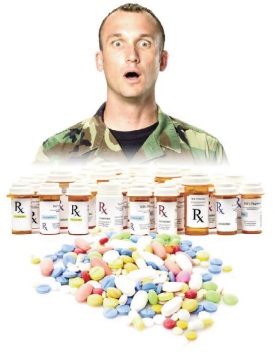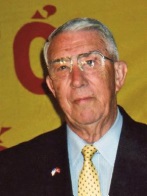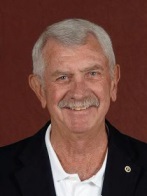When the injured veteran arrives for treatment, it is common to find that they suffer from many symptoms listed above. Their disrupted sleep, profound memory loss, mood swings, and withdrawal-depression require the immediate attention of the clinic staff. Many do not communicate or lack the ability to speak clearly or even pay attention to their first instructions. They must be counseled and gently led through each TBI and PTSD treatment step until they become familiar with and trust the clinic's medical director, the HBOT technicians, the PTSD counselor, and the chamber operators. At first, it is a foreign environment and can be quite intimidating.
Today, more than 450 healed veterans can now attest to the professional and successful TBI and PTSD therapy they experienced in the only integrated TBI and PTSD treatment program in America. When each veteran started the program, it was apparent that they suffered some degree of brain damage from their combat concussions or other injuries. In too many cases, they had suffered their signature wounds for far too long, and their families and friends had suffered. Their brain injuries went unhealed until they sought help at the Rocky Mountain Hyperbaric Institute. Unfortunately, when they arrived at the clinic, a large segment of them were actual “basket cases.” Most were doped up on useless off-label medicine, aka “black drugs,” the majority of which had not yet been approved or tested by the FDA. Some veterans arrived with many different prescriptions as if more of these pills would somehow help them feel better.
The need for additional health services, especially for neurotrauma, has skyrocketed in recent years. And it likely will increase even more significantly as time goes forward. Invisible wounds have become the signature wounds of this generation and these combat veterans. This brings us to our story… the miracle on South Boulder Road in Louisville, Colorado.

POISON PILLS: Prior to the program, many veterans were doped up on useless off-label medicine, the majority of which had not yet been approved or tested by the FDA.
Ryan Fullmer, the program director of Rocky Mountain Hyperbaric Institute, has partnered with Eddie Gomez, President, Patient and Nonprofit Services, Rocky Mountain Hyperbaric Association for Brain Injuries, to treat and heal traumatic brain injuries. They also integrate PTSD counseling within the same TBI treatment period, usually over forty days. This is one of the most innovative and successful programs in the United States and combines the treatment of the two maladies under one comprehensive treatment process (in parallel). •
References
- Hyperbaric Oxygen Therapy Can Improve Post-Concussion Syndrome Years after Mild Traumatic Brain Injury – Randomized Prospective Trial, by Rahav Boussi-Gross equal contributor, Haim Golan equal contributor, Gregori Fishlev, Yair Bechor, Olga Volkov, Jacob Bergan, Mony Friedman, Dan Hoofien, Nathan Shlamkovitch, Eshel Ben-Jacob, Shai Efrati, Published: Nov 15, 2013 (Copyright: ©Boussi-Gross et al.).
- Hyperbaric Oxygen Induces Late Neuroplasticity in Post Stroke Patients – Randomized, Prospective Trial, by Efrati, Shai; Fishlev, Gregori; Bechor, Yair; Volkov, Olga; Bergan, Jacob; Kliakhandler, Kostantin; Kamiager Izhak; Gal, Nachum; Friedman, Mony; Ben-Jacob, Eshel; Golan, Haim, Published: Jan 15, 2013 (Article in Academic Journal of PLOS ONE; Jan2013, Vol. 8 Issue 1).
ABOUT THE AUTHORS

Bob Fischer is a 1955 Naval Academy graduate and career Marine Corps officer who retired in 1982. He was Captain of Marines on the U.S.S. Saint Paul CA73, the 7th Fleet Flagship, from 1961 to 1963, when he studied four guerrilla wars in Southeast Asia and obtained the Malaya Jungle School Syllabus at Johore Bahru. He used the syllabus to establish the 2nd Marine Division Counter-guerrilla Warfare Center at Camp Lejeune, North Carolina. 20,000 Marines, Navy Seal, and Special Forces Teams were also trained there. His CIPA award-winning book Guerrilla Grunt documents this experience. He was also a task force advisor (Covan) for the Vietnamese Marine Corps from 1966 to 1968 and wrote his book Covan about this experience. From 1977-to 80, as Commander of the Defense Electronics Depot, Kettering, Ohio, his workforce set the Defense Logistics Agency's all-time performance record. For this, he was awarded the Defense Superior Service Medal. In 2010, he attended a presentation by the Rocky Mountain Hyperbaric Institute and its nonprofit Rocky Mountain Hyperbaric Association for Brain Injuries, where he learned about their recently established Healing Our Heroes fund. His involvement with other Marine veteran organizations motivated him to become a Veteran's Advocate for the clinic. Joining Grady Birdsong, they filmed the first veterans who received hyperbaric oxygen therapy (HBOT) in the original Boulder clinic and raised funds by presenting the unique HBOT story to groups in the Denver area. He was named Colorado American Legion's Veteran Advocate of the Year for his efforts in 2012.

Grady T. Birdsong was raised in Kansas before enlisting in the United States Marine Corps in 1966. After serving two tours in the Northern "I-Corps" region of Vietnam during Tet of 1968 and the DMZ in 1969, he traveled the world, enjoying a successful career in engineering, business development, marketing, and technical sales in the telecommunications/data systems, information technology systems, and the optical and fiber systems test industries. Additionally, Grady is the author of A Fortunate Passage, To the Sound of the Guns, and Echoes of Our War, with nine EVVY awards from the Colorado Independent Publishers Association (CIPA). In 2010, Grady and Bob Fischer became Marine Corps Veteran Advocates for the Rocky Mountain Hyperbaric Institute, at a time when Ryan Fullmer and Eddie Gomez were struggling to establish their brand new HBOT clinic in the industrial area of Boulder, Colorado. His early filming of the clinic's first successful TBI-PTSD veteran's treatment generated the first significant donor funds, earning $135,000. These funds enabled the HBOT clinic to move to its current site in the Professional & Medical Center in Louisville, CO, and provide a nearby home for the forty-day treatment of out-of-town veterans. Now retired, Grady lives with his wife, Pamela, in the Denver area, where he enjoys his grandchildren and spends his time writing, volunteering, and hunting big game. Grady is a graduate of Regis University in Denver, Colorado. Both authors have an ongoing commitment to veterans of all wars and continue to advocate, inform, educate, and raise nonprofit funds. Both remain Semper Fidelis.